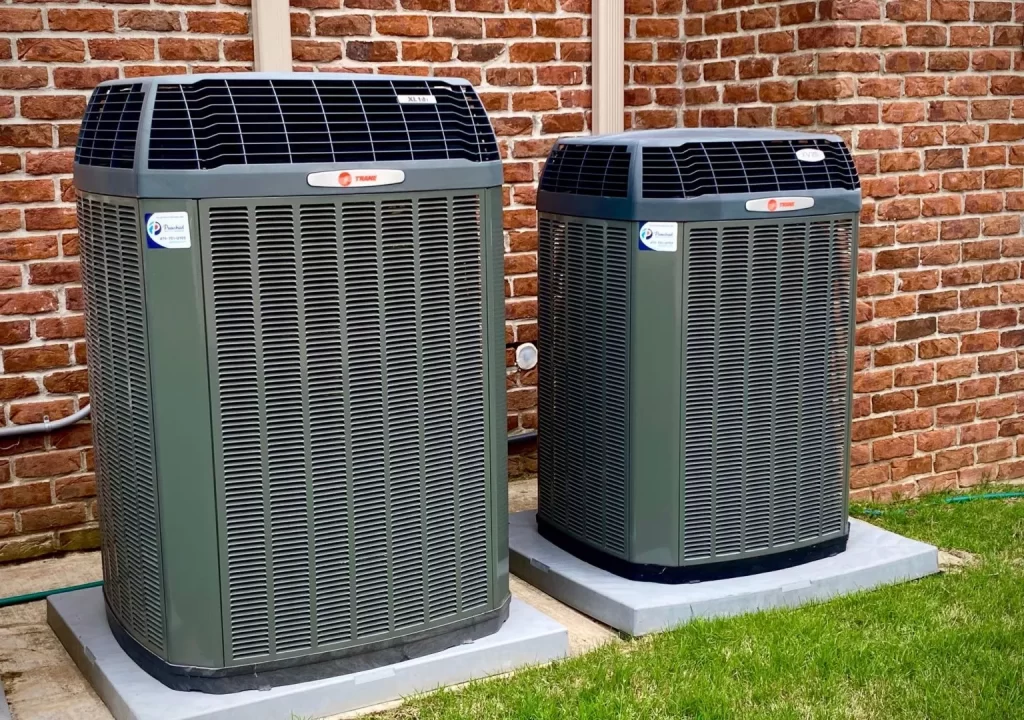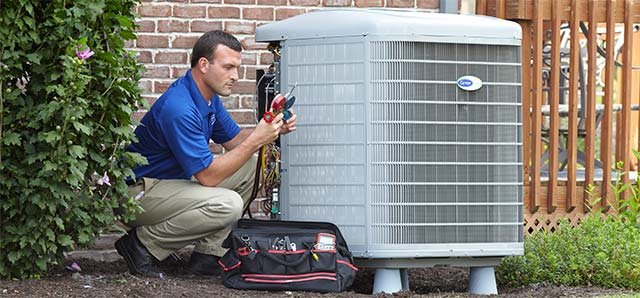POWERFUL ENERGY & EFFICIENCY
Powerful Energy & Efficiency
An HVAC system constitutes a crucial component of any residence or structure. Its primary function is to regulate the indoor environment, ensuring a comfortable ambiance by providing both heating and cooling capabilities, irrespective of external weather conditions or the time of year. Opting for an energy-efficient HVAC unit is highly advisable, as they demand less energy for operation, resulting in long-term cost savings.

What Makes an HVAC System Energy Efficient?
When it comes to appliances and machinery, prioritizing energy efficiency is often the foremost consideration. This holds true for HVAC systems as well, given their substantial contribution to household energy expenses.
Several factors contribute to the energy efficiency of an HVAC system, including its type and the level of maintenance it receives. Consequently, even minor adjustments to an existing system can enhance its overall energy efficiency.
The Science Behind Energy Efficiency in HVAC Systems And Designs
To identify the most energy-efficient HVAC system, it’s beneficial to grasp the underlying science. Various scientific ratings are used to evaluate the efficiency of HVAC systems:
Seasonal Energy Efficiency Ratio (SEER): SEER quantifies the ratio of cooling output (measured in British Thermal Units or BTUs) to energy usage (measured in kilowatt-hours). In terms of SEER ratings, a higher number signifies a more energy-efficient HVAC system. Notably, SEER ratings are based on real-world seasonal cooling conditions rather than controlled laboratory settings.

Energy Efficiency Ratio (EER): Another crucial rating found in highly efficient residential HVAC systems is the EER rating. Unlike the SEER rating, the EER does not rely on seasonal averages for its calculations. Instead, it is determined under controlled laboratory conditions. Similar to the SEER rating, a higher EER number indicates a more energy-efficient HVAC system.

Heating Seasonal Performance Factor (HSPF): The HSPF rating assesses the efficiency of an HVAC system’s heat pump, which operates in both heating and cooling modes. It quantifies the total space heating required, calculated by dividing the BTU measurement by the total electricity consumption of the pump in kilowatt-hours. A higher HSPF ratio signifies a more efficient heat pump.

Energy Savings Service Agreement
This program offers an accessible yearly package providing cost-effective maintenance and prioritized heating and air service as needed. It leads to savings on utility expenses and helps prevent inconvenient breakdowns during extreme weather conditions, be it in the scorching summer or chilly winter.

Priority Service
Includes weekends + holidays

Spring + Fall Tune-Ups
2 per contract term (details below)

1 Free Service Call
Per contract term

Additional 10% off
All accessories and labor

Travel
For travel charges and credit card payments
What Does a tune-up consist of?
Consistent upkeep of your heating and cooling systems not only reduces your utility expenses but also guarantees efficient air conditioning during the summer and effective heating in the winter.

A/C Tune-Up
- Inspect and replace filters (standard filters provided for ESA customers)
- Visually inspect the indoor evaporator coil for bacterial growth
- Visually inspect the blower wheel for dust build-up and growth
- Monitor amperage at the blower motor
- Clean out the drain line and add drain treatment
- Clean outdoor condenser coil with treatment
- Check and monitor refrigerant levels
- Test all electrical components for performance
- Monitor compressor and fan amperage
Heat Tune-Up
- Inspect and replace standard filters for ESA customers
- Visually inspect evaporator coils for any build-up or bacteria
- Visually inspect the blower wheel for dust build-up and growth
- Test and monitor all heating components at the air handler or furnace
- Clean drain line if necessary
- Check and monitor refrigerant levels
- Test all electrical components for performance
- Monitor compressor and fan amperage


